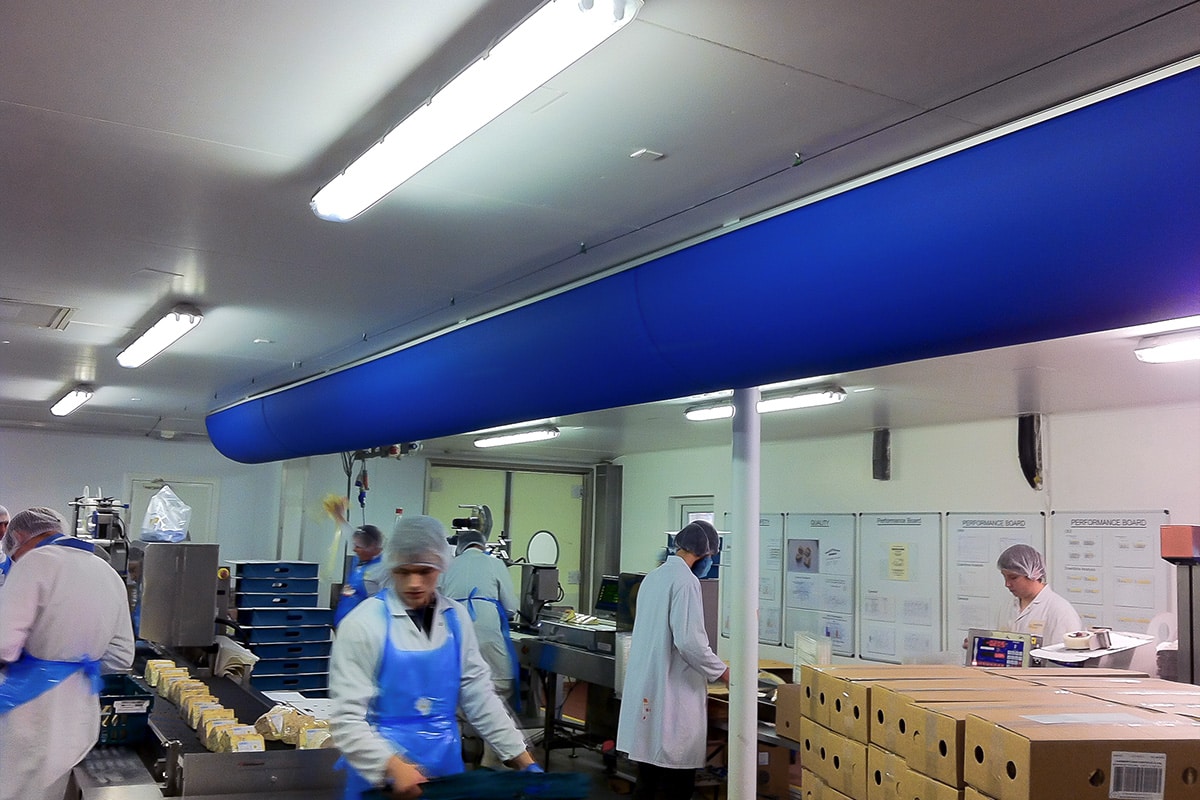How do Fabric Sock Systems Ensure Hygiene and Efficiency


The fabric sock was originally invented for food factories, as they are an ideal way to efficiently supply great amounts of air at a large Δt. This efficiency in distributing the air translates well to many other types of projects, as the diffusers can be designed to suit each project.
But they have another advantage that is not often discussed – they make it easier to maintain hygienic conditions where they are installed.
Cleaner installation
For applications with increased hygiene requirements, such as food factories or healthcare, there is typically very limited time to complete any works, as they usually require shutting down operations in parts of the building and dealing with any dust, dirt and debris generated by the works. With fabric socks the installation process is much quicker than with traditional ducting, leading to less down time. The supports are installed first before the fabric duct is simply slid into place and the sections zippered together. Installation is also relatively clean – the track is pre-cut and the fabric sections are made to measure. This makes it easier to maintain hygienic conditions within the room and clean up once it is done.
Fabric air sock washing
For most applications, fabric socks don’t need to be washed to maintain performance; rather they are washed for aesthetic reasons or because they are used for an application with stringent hygiene rules, such as a laboratory or food factory. The exception is if the air is unfiltered and dusty; if it is distributed primarily through microperforations there is a risk that they will become clogged over time. Thankfully washing a fabric duct is as easy as using a washing machine.
In messy or dusty locations, such as some food factories or even warehouses, traditional metal ductwork generally needs to be cleaned in place. With fabric air socks, if they become soiled, they can be removed from the supports and laundered in a commercial washing machine. The socks are then drip-dried and put back up onto their mounts. The operation is designed to be as simple and quick as possible, making it much easier to maintain hygienic conditions. For applications that require washing at specific intervals, such as pharmaceutical facilities, it is often worthwhile to keep a set of spare ducts to further minimise down time – when the main set is taken down to be washed the spares are installed in their place. For even more convenience, Prihoda UK offers a rotational washing service which includes storage for the spare fabric ducts.
Please contact us if you would like to know more.
Looking for more information?
Our experts are on hand to answer any questions. Why not give us a call or drop us a message, We’ll work with you to find the right solution.
Contact us

